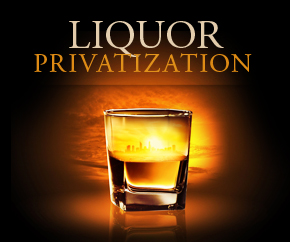Media

Privatization Opponents: Distorting or Ill-Informed?
Critics of liquor store privatization claim that a CDC study suggests liquor privatization would result in greater social harms. The problem: The flawed study doesn’t support that claim, and the Task Force admits that they can’t find a link between privatization of liquor sales and social harms.
Here is my letter to the Pittsburgh-Tribune Review questioning one critic who keeps repeating this misinformation.
Ironically, Keystone Research Center executive director Steve Herzenberg’s letter “One-sided & ill-informed” (May 15 and TribLIVE.com) about Eric Heyl’s column “Here a shot, there a shot: Propaganda flows freely in Pennsylvania debate over liquor stores” (May 4 and TribLIVE.com) is itself replete with factual errors.
Herzenberg writes that a task force of the Centers for Disease Control and Prevention concludes “privatizing alcohol sales would increase excessive drinking, alcohol-related traffic fatalities and other drinking-related social problems.” But the task-force report makes none of those findings.
In fact, the task-force report notes “research gaps” that include “limited available evidence of effects of privatization on alcohol-related harms” and “insufficient evidence to determine the effects of privatization on excessive alcohol consumption and related harms.”
Herzenberg and his government-liquor-union-funded organization are entitled to their opinion, but not their own facts.
I don’t know if he is ill-informed or simply distorting the truth, but either way, the claims he makes are demonstrably wrong.